
Jyväskylä: The Heart of Finnish Lakeland
Nestled in the heart of Finnish Lakeland, Jyväskylä is a city that seamlessly blends natural beauty with rich cultural heritage. Known for its picturesque lakes, lush forests, and vibrant urban life, Jyväskylä offers a unique experience for every kind of traveler. Whether you're an outdoor enthusiast, a history buff, or someone looking to relax, Jyväskylä has something special to offer. The city is home to several architectural marvels designed by Alvar Aalto, the renowned Finnish architect. Aalto's works provide a fascinating insight into modernist architecture and are a must-see for any visitor. The Alvar Aalto Museum and the various public buildings he designed around the city make for an enriching cultural tour. For nature lovers, Jyväskylä's surrounding lakes and forests offer a plethora of activities. You can hike, bike, or even take a leisurely boat ride to soak in the stunning scenery. In the winter, the area transforms into a snowy wonderland perfect for skiing and snowboarding. The city also boasts a lively arts and music scene, with numerous festivals, galleries, and theaters. The annual Jyväskylä Summer Festival and the Arctic Art and Music Festival are just a couple of the events that draw visitors from all over the world. Foodies will delight in Jyväskylä’s culinary offerings. The city features a variety of restaurants that serve both traditional Finnish dishes and international cuisine. Don’t miss the opportunity to try local specialties like Karelian pasties and fresh fish from the local lakes.
Local tips in Jyväskylä
- Visit the Alvar Aalto Museum for an insight into modernist architecture.
- Explore the lakes and forests surrounding the city for outdoor activities.
- Attend the Jyväskylä Summer Festival for a taste of local arts and music.
- Try local culinary specialties like Karelian pasties and fresh lake fish.
- Visit the Toivola Old Courtyard for a glimpse into 19th-century Finnish life.
Jyväskylä: The Heart of Finnish Lakeland
Nestled in the heart of Finnish Lakeland, Jyväskylä is a city that seamlessly blends natural beauty with rich cultural heritage. Known for its picturesque lakes, lush forests, and vibrant urban life, Jyväskylä offers a unique experience for every kind of traveler. Whether you're an outdoor enthusiast, a history buff, or someone looking to relax, Jyväskylä has something special to offer. The city is home to several architectural marvels designed by Alvar Aalto, the renowned Finnish architect. Aalto's works provide a fascinating insight into modernist architecture and are a must-see for any visitor. The Alvar Aalto Museum and the various public buildings he designed around the city make for an enriching cultural tour. For nature lovers, Jyväskylä's surrounding lakes and forests offer a plethora of activities. You can hike, bike, or even take a leisurely boat ride to soak in the stunning scenery. In the winter, the area transforms into a snowy wonderland perfect for skiing and snowboarding. The city also boasts a lively arts and music scene, with numerous festivals, galleries, and theaters. The annual Jyväskylä Summer Festival and the Arctic Art and Music Festival are just a couple of the events that draw visitors from all over the world. Foodies will delight in Jyväskylä’s culinary offerings. The city features a variety of restaurants that serve both traditional Finnish dishes and international cuisine. Don’t miss the opportunity to try local specialties like Karelian pasties and fresh fish from the local lakes.
When is the best time to go to Jyväskylä?
Iconic landmarks you can’t miss
Jyväskylä Harbour
Experience the natural beauty and vibrant atmosphere of Jyvaskyla Harbour, a tranquil marina perfect for relaxation and adventure in Finland.
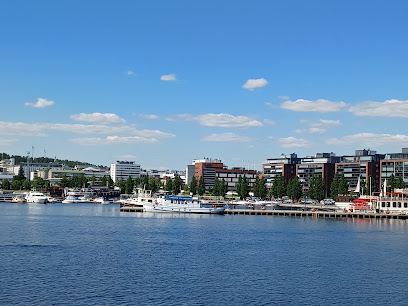
Finnish Air Force Museum
Discover the fascinating history of aviation at the Finnish Air Force Museum with its impressive collection of aircraft and engaging exhibits.
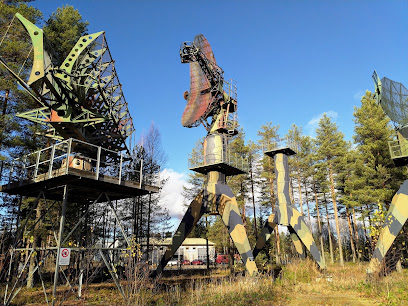
AaltoAlvari - Swimming Hall by Alvar Aalto
Experience the architectural beauty and recreational bliss of AaltoAlvari, Jyvaskyla's premier indoor swimming pool designed by Alvar Aalto.
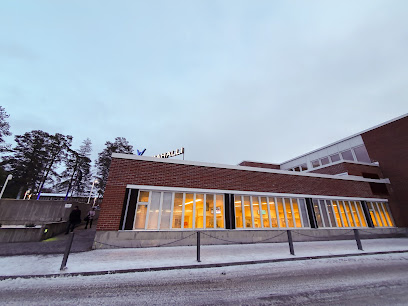
Mäki-Matti Family Park
Explore the enchanting Mäki-Matti Family Park in Jyväskylä, a perfect blend of nature, play, and family fun amidst scenic surroundings.
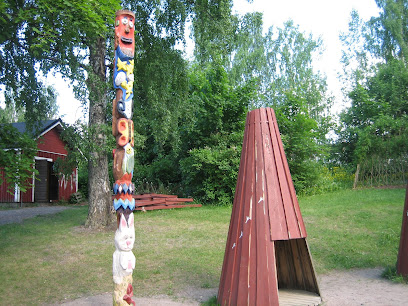
Leivonmäki National Park
Explore the serene beauty of Leivonmäki National Park, a tranquil wilderness retreat in Finland, perfect for hiking, birdwatching, and reconnecting with nature.
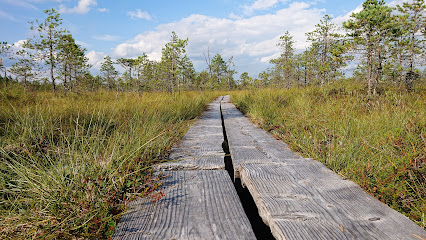
Tourujoki nature trail
Explore the breathtaking beauty of the Tourujoki Nature Trail in Jyvaskyla, where nature and tranquility await every visitor.
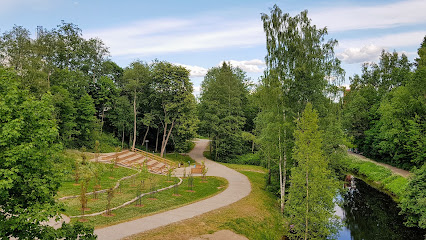
Toivola Old Courtyard
Experience the beauty and culture of Toivola Old Courtyard in Jyväskylä, a charming attraction with crafts, cafes, and events that celebrate Finnish heritage.
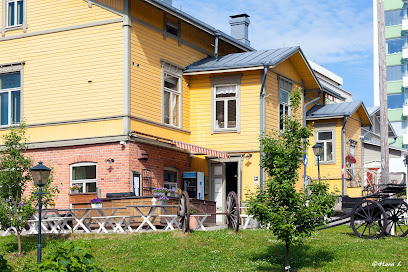
Natural History Museum of Central Finland
Explore the Natural History Museum of Central Finland for an unforgettable journey through the region's stunning biodiversity and ecological wonders.
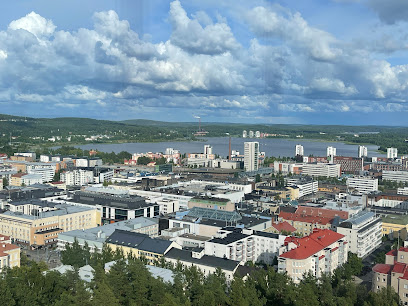
Restaurant Pöllöwaari
Experience the pinnacle of fine dining at Restaurant Pöllöwaari in Jyväskylä, where every dish tells a story of local flavors and culinary artistry.
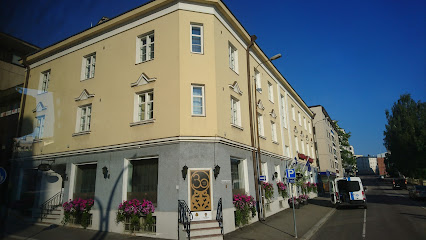
Freetime
Experience the vibrant nightlife of Jyväskylä at Freetime, the ultimate disco club for dance, karaoke, and rock music enthusiasts.
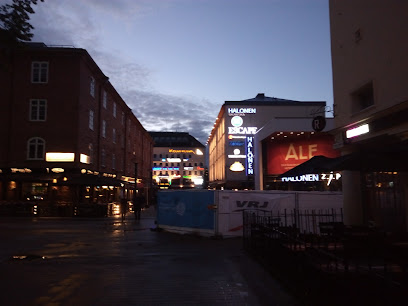
Nero Stairs
Experience the breathtaking views and urban charm of the iconic Nero Stairs in Jyväskylä, a must-visit destination for every traveler.
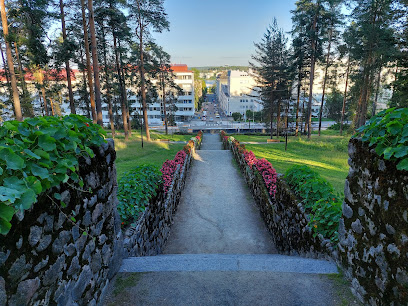
Alvar Aalto Museum
Discover the architectural genius of Alvar Aalto at the Alvar Aalto Museum in Jyväskylä – a cultural gem showcasing design innovation and heritage.
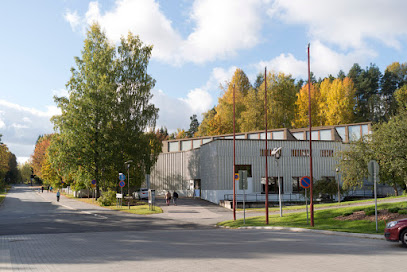
Petäjävesi old church, UNESCO World Heritage Site
Discover the beauty of the Petäjävesi Old Church, a UNESCO World Heritage Site, showcasing exquisite Finnish wooden architecture amidst serene landscapes.
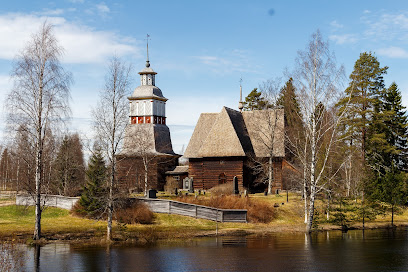
Suomalainen Kirjakauppa Jyväskylä
Explore the literary treasures at Suomalainen Kirjakauppa in Jyväskylä – a cultural hub for books, art supplies, and unique gifts.
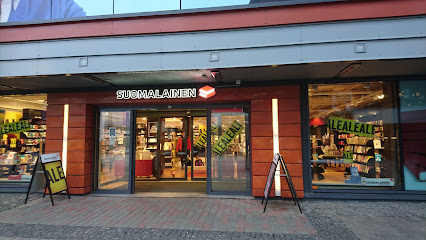
Museum of Central Finland
Discover the vibrant history and culture of Central Finland at the Museum of Central Finland, a must-visit for art and history lovers.
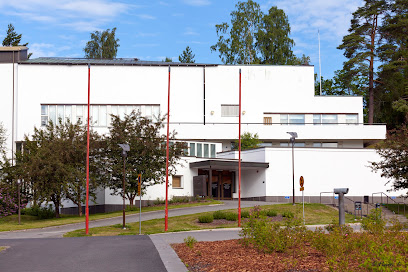
Unmissable attractions to see
AaltoAlvari - Swimming Hall by Alvar Aalto
Experience Finnish architecture and aquatic bliss at AaltoAlvari, the only swimming hall designed by Alvar Aalto in beautiful Jyväskylä.

Mäki-Matti Family Park
A cherished family park in Jyväskylä since 1979, offering playgrounds, indoor facilities, and a warm atmosphere for memorable experiences. Free entry!
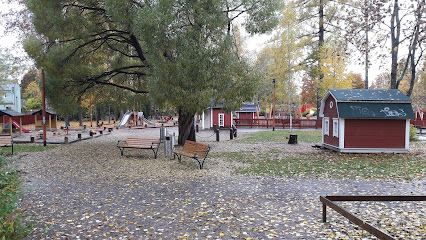
Tourujoki nature trail
Discover tranquility in the city: Explore Jyväskylä's lush Tourujoki Nature Trail, a perfect escape for nature lovers and outdoor enthusiasts.
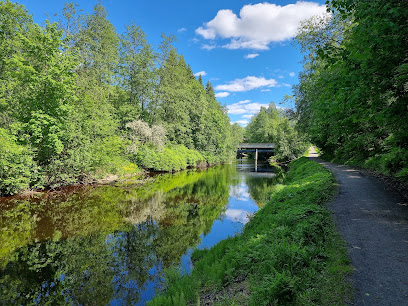
Alvar Aalto Museum
Explore the legacy of Alvar Aalto, the master of Finnish architecture and design, at his namesake museum in Jyväskylä.
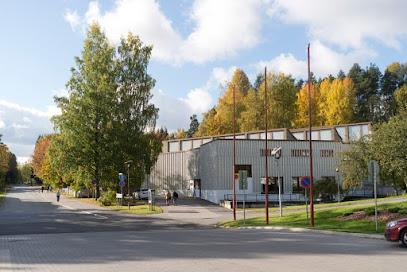
Natural History Museum of Central Finland
Explore Central Finland's natural heritage: biodiversity, geology, and wildlife exhibits for an immersive experience in Jyväskylä.
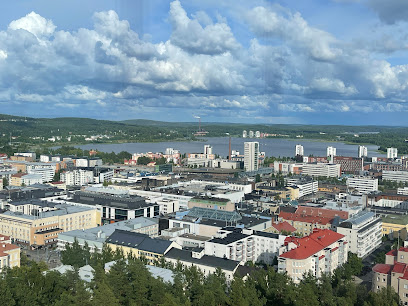
Jyväskylä Art Museum
Explore contemporary and Central Finnish art at Jyväskylä Art Museum, a cultural gem in the heart of the city.
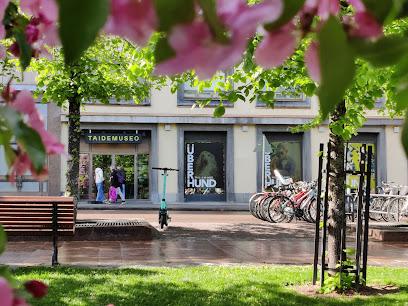
Museum of Central Finland
Explore Central Finland's history and culture in an Alvar Aalto-designed architectural gem. A journey through time awaits!
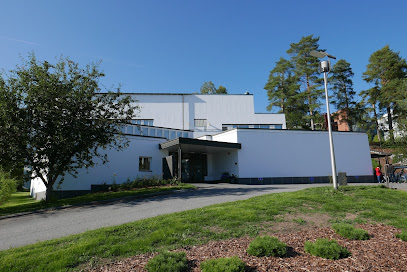
Craft Museum of Finland
Explore Finland's rich craft heritage at the Craft Museum of Finland in Jyväskylä, showcasing diverse techniques and traditions for all ages.
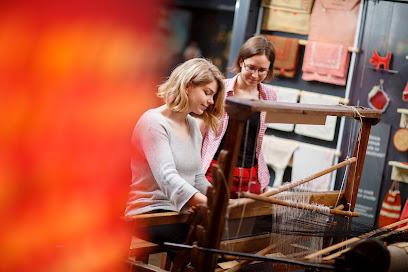
Laajavuori
Experience year-round outdoor adventures and stunning views at Laajavuori, Jyväskylä's urban sports center in the heart of Finnish Lakeland.
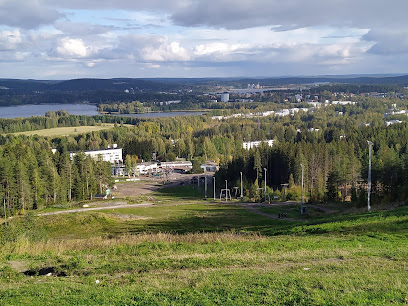
Kuokkala Bridge
Discover the stunning Kuokkala Bridge in Jyväskylä, an architectural masterpiece offering breathtaking views and a serene atmosphere for all visitors.
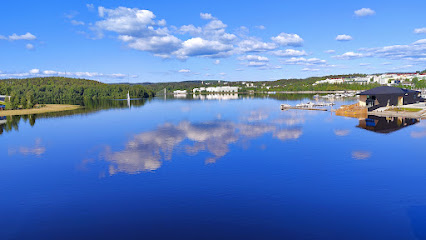
Kuokkala manor
Experience Finnish history and culinary excellence at Kuokkala Manor, a beautifully restored Jugendstil landmark in Jyväskylä.
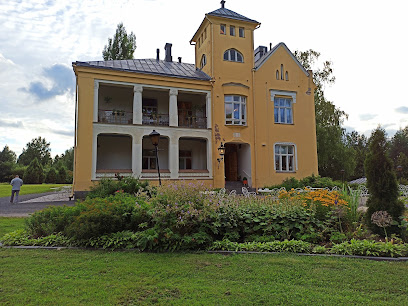
Ylistö bridge
Discover Jyväskylä's architectural gem: Ylistö Bridge, a pedestrian and cycling haven with stunning lakeside views and enchanting illuminations.
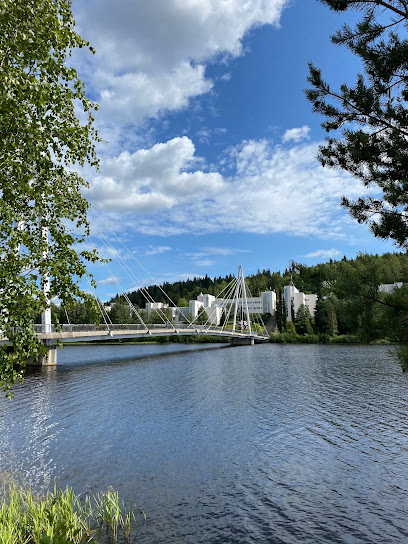
Säynätsalo Town Hall by Alvar Aalto
Explore Alvar Aalto's architectural gem: Säynätsalo Town Hall, a blend of Finnish vernacular and Italian Renaissance design in a unique island setting.
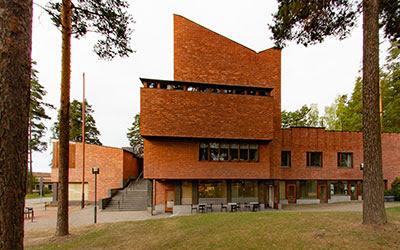
Vesilinna Observation Tower
Experience breathtaking views and the serene beauty of Jyväskylä from the iconic Vesilinna Observation Tower, a must-visit scenic spot in Finland.
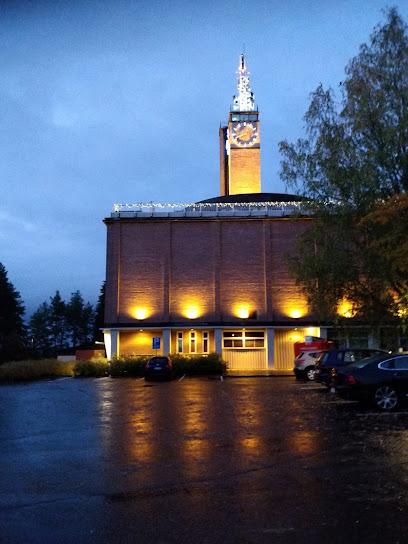
Äijälänsalmen vanha silta
Explore a historic landmark in Jyväskylä: the Äijälänsalmi Old Bridge, a scenic path for pedestrians and cyclists with beautiful lake views.
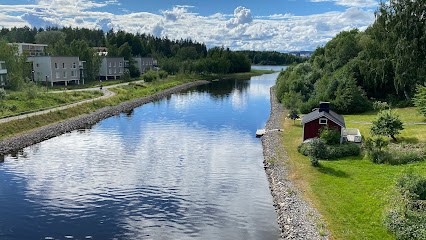
Essential places to dine
Revolution
Experience the vibrant flavors of Jyväskylä at Revolution Restaurant - where Finnish tradition meets international cuisine.
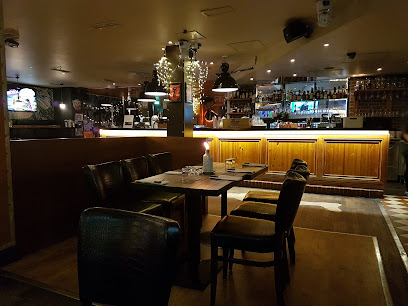
Viking Restaurant Harald
Discover the flavors of Nordic cuisine at Viking Restaurant Harald in Jyväskylä – where tradition meets contemporary dining.
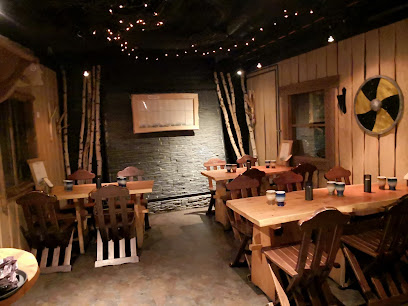
Pasargad
Experience authentic flavors at Pasargad in Jyväskylä - where culinary excellence meets warm hospitality.
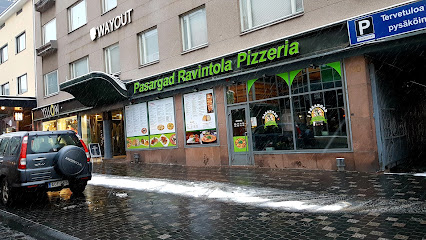
Pizzeria Bella Roma
Savor authentic Southern Italian flavors at Pizzeria Bella Roma in Jyväskylä, offering delicious wood-fired pizzas in a charming atmosphere.
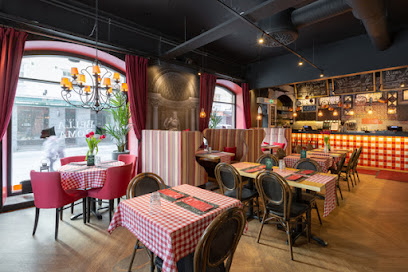
Restaurant Sohwi
Experience authentic Finnish cuisine at Restaurant Sohwi in Jyväskylä - where fresh ingredients meet cozy atmosphere.
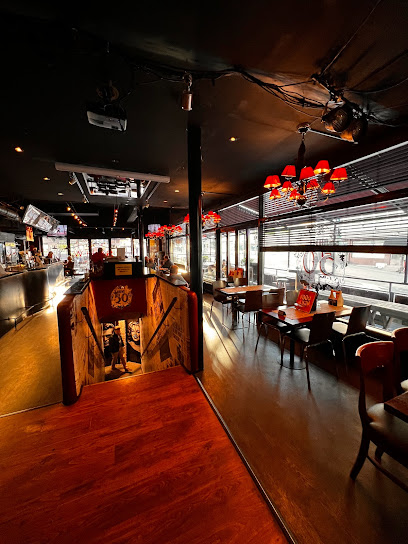
Container Restaurant Morton Jyväskylä
Savor delectable burgers and aromatic coffee at Container Restaurant Morton in Jyväskylä - where modern dining meets cozy charm.
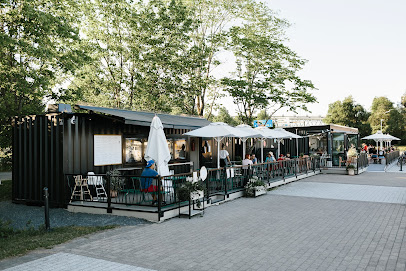
Trattoria Aukio, Jyväskylä
Experience delightful Italian cuisine at Trattoria Aukio in Jyväskylä - where every dish tells a story of tradition and flavor.
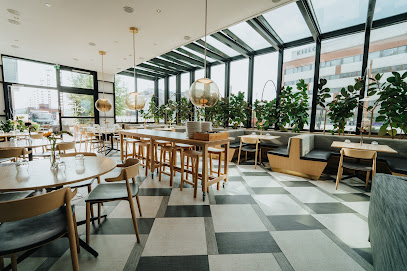
Seminaarinkadun Grilli
Experience the authentic taste of Finnish barbecue at Seminaarinkadun Grilli in Jyväskylä - where every bite tells a story.
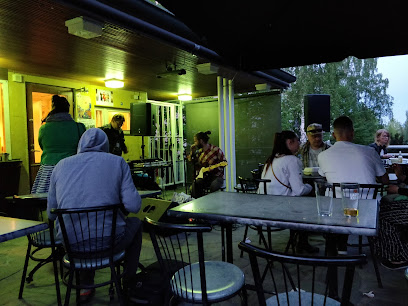
Ravintola Teerenpeli
Experience authentic Finnish cuisine and craft beverages at Ravintola Teerenpeli in Jyväskylä's vibrant heart.
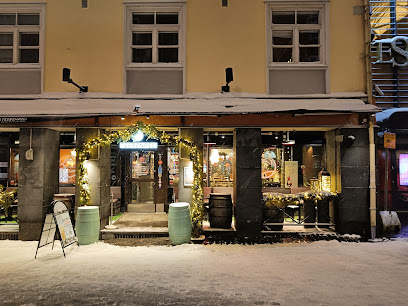
Ristorante Momento
Experience authentic Italian flavors at Ristorante Momento in Jyväskylä—where every dish tells a story.
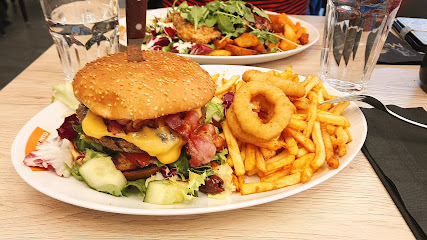
Café & Restaurant Vesilinna
Discover Café & Restaurant Vesilinna: A delightful dining experience in Jyväskylä featuring local Finnish cuisine amidst scenic views.
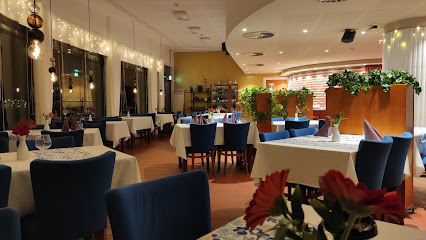
Ravintola Sakuragawa
Discover authentic Asian cuisine at Ravintola Sakuragawa in Jyväskylä - where tradition meets flavor in an inviting atmosphere.
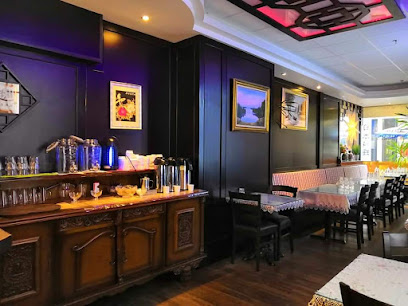
Green Egg
Discover Green Egg in Jyväskylä – where exquisite grilled flavors meet delightful desserts in an inviting setting.
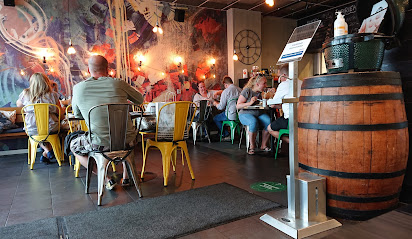
Ravintola Kissanviikset
Discover culinary excellence at Ravintola Kissanviikset in Jyväskylä—where local flavors meet international flair in an elegant setting.
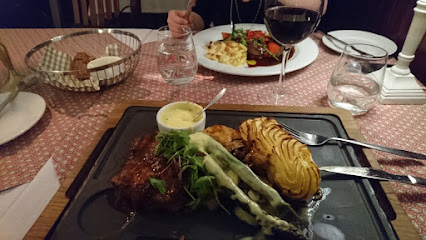
Figaro Restaurant
Experience culinary excellence at Figaro Restaurant in Jyväskylä – where local flavors meet contemporary elegance.
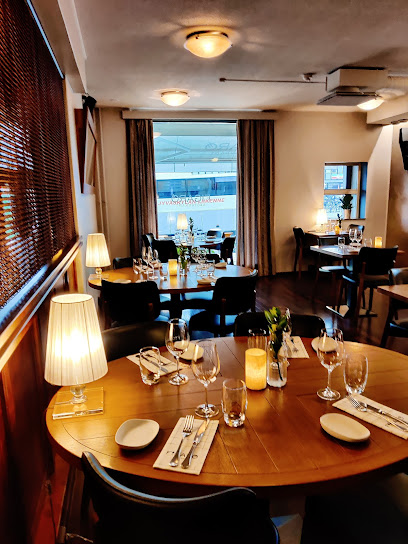
Markets, malls and hidden boutiques
Seppä
Explore Seppä, Jyväskylä's vibrant shopping mall, offering a mix of local and international shops, delicious dining, and engaging entertainment for all.
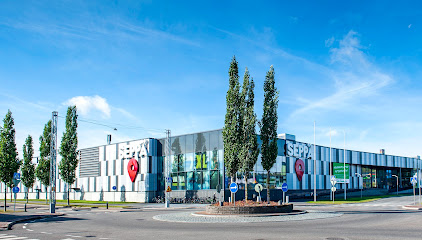
Forum
Discover shopping, dining, and entertainment at Forum Shopping Mall in Jyväskylä, a vibrant hub for tourists and locals alike.
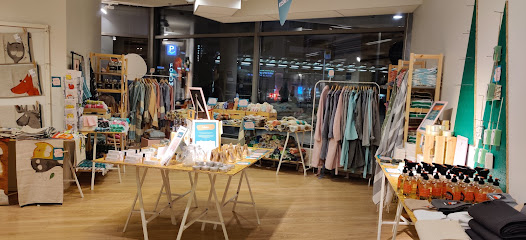
Sokos department store, Jyväskylä
Discover the ultimate shopping experience at Sokos Department Store in Jyväskylä, featuring a variety of clothing, cosmetics, and local Finnish brands.
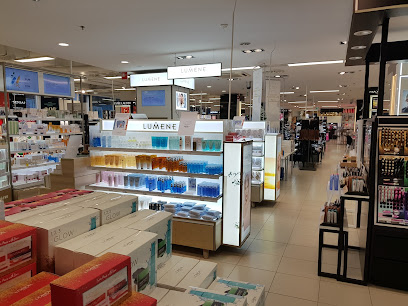
Kauppakeskus Sokkari
Experience the best of shopping and dining at Kauppakeskus Sokkari in Jyväskylä, a vibrant hub for tourists and locals alike.
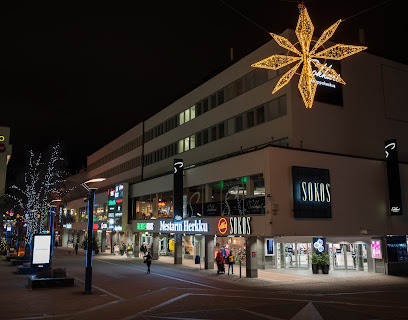
Jyväskylä Torikeskus
Explore Jyväskylä Torikeskus: Your ultimate shopping and dining destination in the heart of Jyväskylä, Finland.
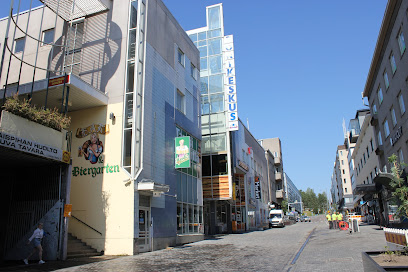
Tawast Jyväskylä
Explore Tawast Jyväskylä, a bustling shopping mall in Finland offering a mix of local and international brands in a vibrant atmosphere.
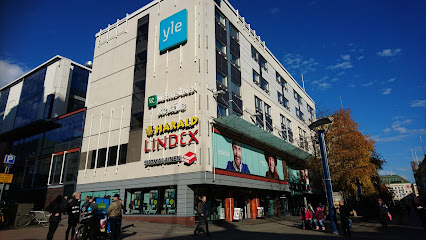
NEW YORKER
Explore NEW YORKER in Jyväskylä for a stylish selection of clothing and accessories for men, women, and youth, all in one trendy location.
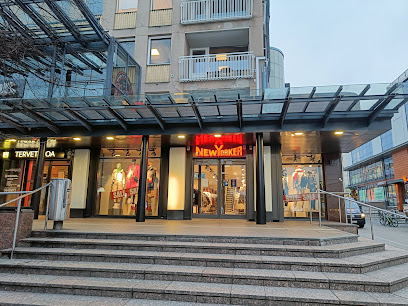
Beyond
Explore Beyond in Jyväskylä, where fashion meets quality in a stylish clothing and shoe store offering the latest trends.
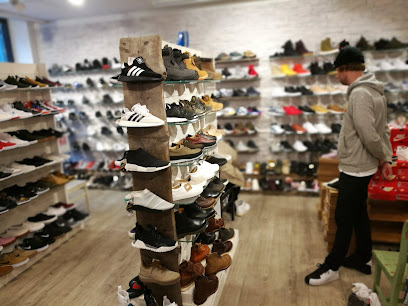
UNDERGROUND STORE & PIERCING STUDIO
Explore unique fashion and body piercing at the Underground Store & Piercing Studio, Jyväskylä's creative hotspot for self-expression.
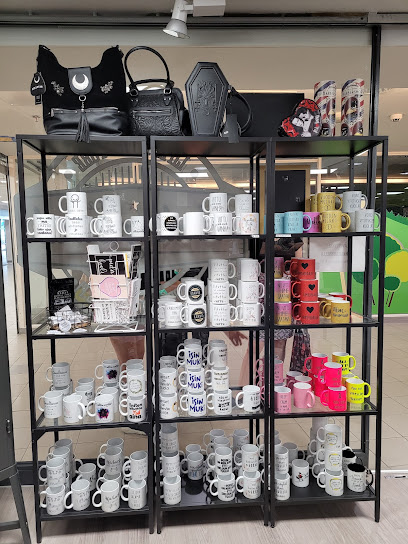
Partioaitta
Discover a wide range of outdoor clothing and equipment at Partioaitta, your go-to shop for all outdoor adventures in Jyväskylä.
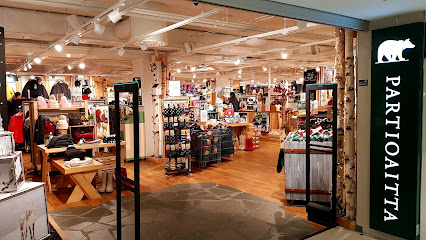
Ellin Kirja & Putiikki
Explore Ellin Kirja & Putiikki, a unique gift and book shop in Jyväskylä, offering delightful books, toys, and souvenirs for all ages.
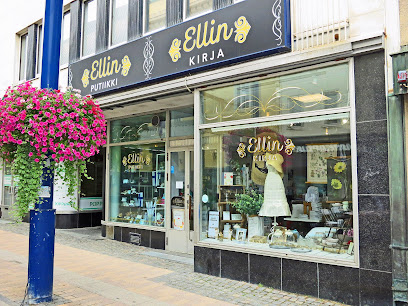
Flying Tiger Copenhagen
Explore Flying Tiger Copenhagen in Jyväskylä for unique gifts, home goods, and quirky toys that embody creativity and fun.
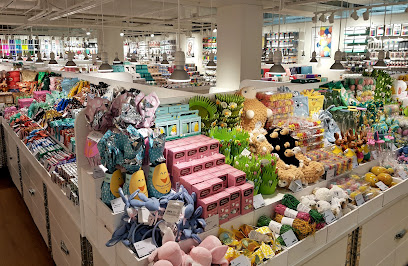
Kekäle Jyväskylä
Explore Kekäle Jyväskylä, a premier clothing store offering stylish men's and women's apparel that showcases Finnish craftsmanship and design.
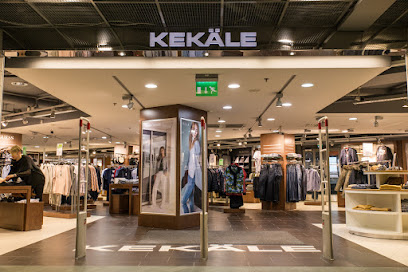
Vaatetusliike Aaron's Oy
Explore Jyväskylä's finest clothing store, Vaatetusliike Aaron's Oy, offering stylish apparel and expert alterations for the discerning traveler.
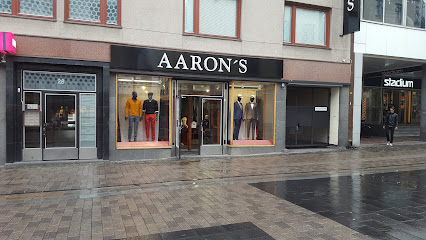
Galleria Kivitasku Oy
Explore the charm of Galleria Kivitasku Oy, a unique gift shop in Jyväskylä, showcasing handcrafted treasures and local art.
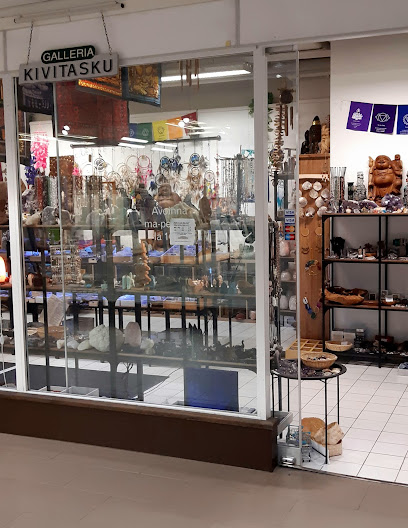
Essential bars & hidden hideouts
Harry's
Experience the lively atmosphere and extensive drink selection at Harry's, a top pub in Jyväskylä, Finland, perfect for socializing and relaxation.
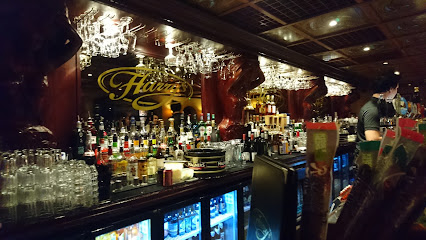
Musta Kynnys
Experience Jyväskylä's vibrant nightlife at Musta Kynnys, a lively bar and restaurant offering delicious food and an extensive drink selection.
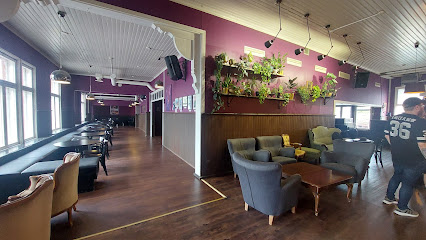
Poppari
Experience the vibrant nightlife of Jyväskylä at Poppari, a live music bar where great tunes and good vibes come together.
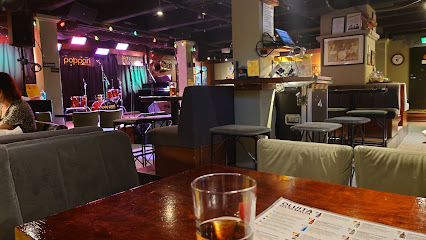
Pub & Club Onni
Discover the lively atmosphere of Pub & Club Onni, a top-rated pub and karaoke bar in Jyväskylä, perfect for unforgettable nights out.
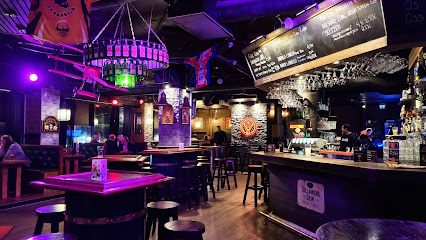
Bar Explosive
Discover the vibrant atmosphere of Bar Explosive, Jyväskylä's premier beer garden, offering a delightful selection of local brews and lively ambiance.
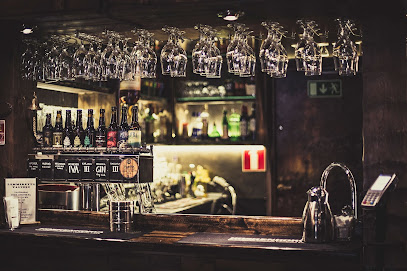
Vakiopaine
Experience Jyväskylä's vibrant nightlife at Vakiopaine, a bar filled with local art, unique drinks, and a welcoming atmosphere.
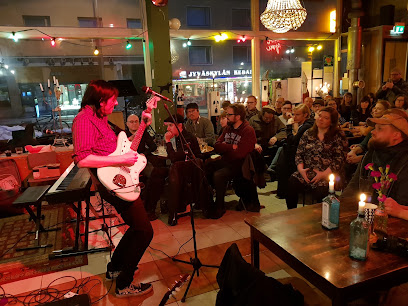
Vihreä Haltiatar
Discover Vihreä Haltiatar, a lively pub in Jyväskylä, where locals gather to enjoy drinks, live music, and the vibrant Finnish nightlife.
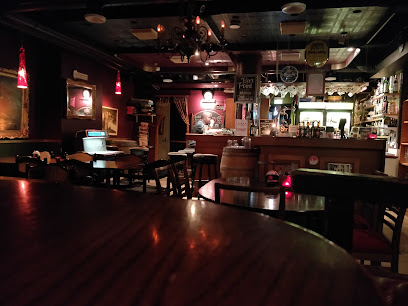
DeLorean
Experience the vibrant atmosphere and innovative cocktails at DeLorean, Jyväskylä's premier cocktail bar.
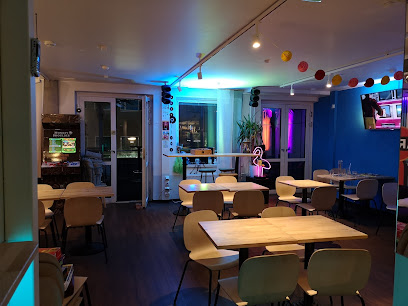
Verso Baari & Keittiö
Explore the culinary delights of Verso Baari & Keittiö, a vibrant bar and restaurant in Jyväskylä, blending local flavors with a lively atmosphere.
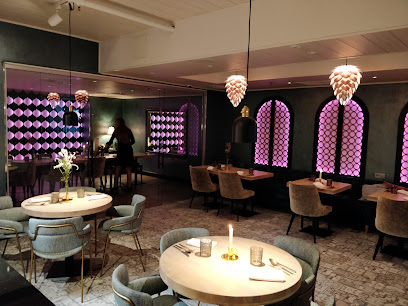
Hemingway's
Experience the vibrant nightlife of Jyväskylä at Hemingway's, where cocktails, cuisine, and camaraderie await.
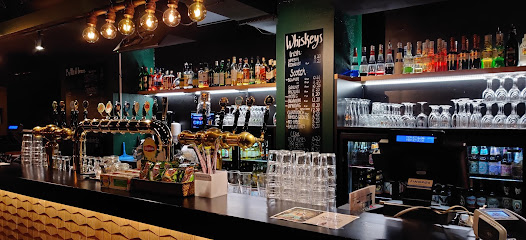
Matsi Bar
Discover Matsi Bar in Jyväskylä – the ultimate destination for sports fans and sauna lovers alike, offering a vibrant atmosphere and refreshing experiences.
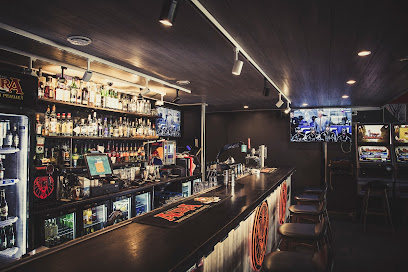
Cheers
Experience the lively atmosphere and diverse drink selection at Cheers, the heart of Jyväskylä's nightlife.
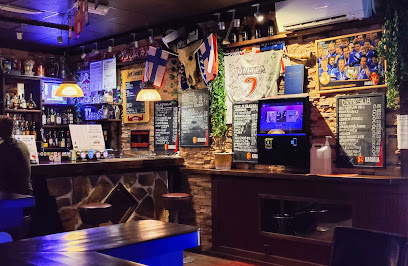
Unelma Happy Bar
Experience the vibrant atmosphere and diverse drink selection at Unelma Happy Bar, the perfect pub in Jyväskylä for locals and tourists alike.
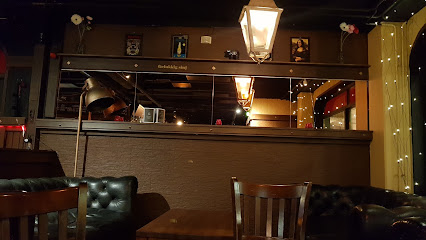
Yläkaupungin Ale Pub
Experience the vibrant atmosphere of Yläkaupungin Ale Pub, Jyväskylä's top karaoke bar, where locals and tourists unite for a night of fun and music.
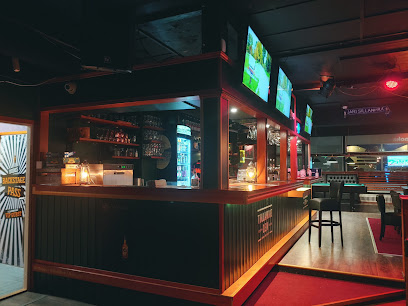
Local Phrases
-
- HelloMoi
[mɔi] - GoodbyeNäkemiin
[nækemiːn] - YesKyllä
[kyllæ] - NoEi
[ei] - Please/You're welcomeOle hyvä
[ole hyvæ] - Thank youKiitos
[kiitos] - Excuse me/SorryAnteeksi
[ɑnteeksi] - How are you?Mitä kuuluu?
[mitæ kuːluː] - Fine. And you?Hyvin. Entä sinä?
[hyvin entæ sinæ] - Do you speak English?Puhutko englantia?
[puhutko eŋlɑntiɑ] - I don't understandEn ymmärrä
[en ymmærːæ]
- HelloMoi
-
- I'd like to see the menu, pleaseSaisinko nähdä ruokalistan?
[sɑisinko næhdæ ruokɑlistɑn] - I don't eat meatEn syö lihaa
[en syø lihɑː] - Cheers!Kippis!
[kipːis] - I would like to pay, pleaseHaluan maksaa, kiitos
[hɑluɑn mɑksɑː kiitos]
- I'd like to see the menu, pleaseSaisinko nähdä ruokalistan?
-
- Help!Apua!
[ɑpuɑ] - Go away!Mene pois!
[mene pois] - Call the Police!Soita poliisille!
[soitɑ poliisille] - Call a doctor!Soita lääkärille!
[soitɑ læːkæriːle] - I'm lostOlen eksyksissä
[olen eksyksiːsæ] - I'm illOlen sairas
[olen sɑirɑs]
- Help!Apua!
-
- I'd like to buy...Haluaisin ostaa...
[hɑluɑisin ostɑː] - I'm just lookingKatson vain
[kɑtson vɑin] - How much is it?Paljonko se maksaa?
[pɑljonko se mɑksɑː] - That's too expensiveSe on liian kallis
[se on liiɑn kɑllis] - Can you lower the price?Voitko laskea hintaa?
[voitko lɑskɑː hintɑː]
- I'd like to buy...Haluaisin ostaa...
-
- What time is it?Mitä kello on?
[mitæ kello on] - It's one o'clockKello on yksi
[kello on yksi] - Half past (10)Puoli (10)
[puoli] - MorningAamu
[ɑɑmu] - AfternoonIltapäivä
[iltæpæivæ] - EveningIlta
[iltɑ] - YesterdayEilen
[eilen] - TodayTänään
[tænææn] - TomorrowHuomenna
[huomennɑ] - 1Yksi
[yksi] - 2Kaksi
[kɑksi] - 3Kolme
[kolme] - 4Neljä
[neljæ] - 5Viisi
[viisi] - 6Kuusi
[kuusi] - 7Seitsemän
[seitsemæn] - 8Kahdeksan
[kɑhdeksæn] - 9Yhdeksän
[yhdeksæn] - 10Kymmenen
[kymmenæn]
- What time is it?Mitä kello on?
-
- Where's a/the...?Missä on...
[missæ on] - What's the address?Mikä on osoite?
[mikæ on osɔite] - Can you show me (on the map)?Voitko näyttää minulle (kartalla)?
[voitko næyttææ minulle kartɑllɑ] - When's the next (bus)?Milloin on seuraava (bussi)?
[milloin on seurɑːvɑː bussi] - A ticket (to ....)Lippu (....)
[lipːu]
- Where's a/the...?Missä on...
History of Jyväskylä
-
Jyväskylä was officially founded on March 22, 1837, by the Russian Emperor Nicholas I. The city's establishment marked the start of its development as a significant administrative and educational center in central Finland.
-
Jyväskylä is often referred to as the 'Athens of Finland' due to its pivotal role in Finnish education. The first Finnish-language secondary school, the Jyväskylä Lyceum, was established here in 1858. Additionally, the first Finnish-language teacher training college, now known as the University of Jyväskylä, was founded in 1863, making the city a cornerstone of Finnish educational reform.
-
The late 19th and early 20th centuries saw Jyväskylä transform into an industrial hub. The establishment of factories, such as the Jyväskylä Paper Mill in 1872 and the Schauman Plywood Factory in 1912, spurred economic growth and urbanization, attracting workers and fostering community development.
-
Renowned Finnish composer Jean Sibelius visited Jyväskylä multiple times, conducting his own works and contributing to the city's cultural life. His visits in the late 19th and early 20th centuries helped solidify Jyväskylä's status as a cultural center in Finland, with a strong emphasis on music and the arts.
-
Jyväskylä is notable for its architectural heritage, particularly the works of Alvar Aalto, one of Finland's most famous architects. Aalto's designs, such as the Jyväskylä Workers' Club (1924-1925) and the University of Jyväskylä's main buildings (1951-1971), showcase the evolution of his architectural style and are key attractions for visitors interested in modernist architecture.
-
During World War II, Jyväskylä played a strategic role due to its central location. After the war, the city underwent significant reconstruction and expansion, driven by the need to accommodate a growing population and the demands of post-war recovery. This period saw the establishment of new residential areas and public services.
-
Since 1951, Jyväskylä has been home to the Neste Rally Finland, one of the oldest and most prestigious events in the World Rally Championship. The rally attracts motorsport enthusiasts from around the globe and has become an integral part of the city's cultural identity.
-
In recent decades, Jyväskylä has positioned itself as a center for technology and innovation. The establishment of the Jyväskylä Science Park and the growth of the information technology sector have transformed the city's economic landscape, making it a hub for research, development, and entrepreneurship.
Jyväskylä Essentials
-
Jyväskylä is situated in central Finland and is accessible by various means of transportation. The nearest international airport is Helsinki-Vantaa Airport, located about 270 kilometers south of Jyväskylä. From Helsinki, you can take a direct train or bus to Jyväskylä, with the train journey taking approximately 3.5 hours. Alternatively, Jyväskylä has its own small airport, Tikkakoski Airport, which offers domestic flights mainly from Helsinki. For those driving, Jyväskylä is well-connected by major highways.
-
Jyväskylä offers a range of transportation options. The city has an efficient public bus network operated by Linkki, with routes covering most parts of the city and its suburbs. Taxis are readily available, and ridesharing services like Uber are also in operation. For a more flexible schedule, consider renting a car to explore the surrounding regions. Bicycles can be rented for those who prefer eco-friendly transportation, and the city is known for its extensive network of bike paths.
-
The official currency in Finland is the Euro (EUR). Credit and debit cards are widely accepted in Jyväskylä, including in most hotels, restaurants, and shops. ATMs are plentiful throughout the city, making it easy to withdraw cash if needed. Contactless payment methods such as Apple Pay and Google Pay are also commonly used.
-
Jyväskylä is generally a very safe city for tourists. Crime rates are low, but it is always advisable to take standard precautions such as avoiding poorly lit areas at night and keeping an eye on your belongings in crowded places. There are no specific areas in Jyväskylä known for high crime rates targeting tourists.
-
In case of an emergency, dial 112 for immediate assistance, which is the emergency number for police, fire, and medical services in Finland. Jyväskylä has several hospitals and medical clinics, including the Central Finland Central Hospital. Pharmacies are available throughout the city for minor health issues. It is highly recommended to have travel insurance that covers medical emergencies.
-
Fashion: Do dress in layers, as Finnish weather can be unpredictable. Casual and comfortable clothing is generally acceptable. Religion: Do show respect when visiting religious sites, and dress modestly. Public Transport: Do validate your bus ticket upon boarding. Don't eat or drink on public transport. Greetings: Do greet people with a firm handshake. Finns appreciate personal space, so avoid hugging unless you're very familiar with the person. Eating & Drinking: Do try local Finnish dishes like Karelian pasty and salmon soup. Don't be late for meals or appointments, as punctuality is highly valued.
-
To experience Jyväskylä like a local, visit the Harju Ridge for a panoramic view of the city. Spend an afternoon at the Jyväskylä City Library, which is a popular spot among locals. Don't miss the chance to explore the Alvar Aalto Museum and understand the work of this famous Finnish architect. For a unique experience, take a walk around Lake Jyväsjärvi and enjoy the outdoor art installations. Also, consider visiting during one of the city's many festivals, such as the Jyväskylä Summer Festival, to get a taste of local culture and traditions.
Trending Landmark in Jyväskylä
-
Jyväskylä Harbour
-
Finnish Air Force Museum
-
AaltoAlvari - Swimming Hall by Alvar Aalto
-
Mäki-Matti Family Park
-
Leivonmäki National Park
-
Tourujoki nature trail
-
Toivola Old Courtyard
-
Natural History Museum of Central Finland
-
Restaurant Pöllöwaari
-
Freetime
-
Nero Stairs
-
Alvar Aalto Museum
-
Petäjävesi old church, UNESCO World Heritage Site
-
Suomalainen Kirjakauppa Jyväskylä
-
Museum of Central Finland
Nearby Cities to Jyväskylä
-
Things To Do in Kuopio
-
Things To Do in Tampere
-
Things To Do in Lahti
-
Things To Do in Savonlinna
-
Things To Do in Porvoo
-
Things To Do in Vaasa
-
Things To Do in Espoo
-
Things To Do in Helsinki
-
Things To Do in Turku
-
Things To Do in Oulu
-
Things To Do in Tallinn
-
Things To Do in Rakvere
-
Things To Do in Jõhvi
-
Things To Do in Rapla
-
Things To Do in Paide













